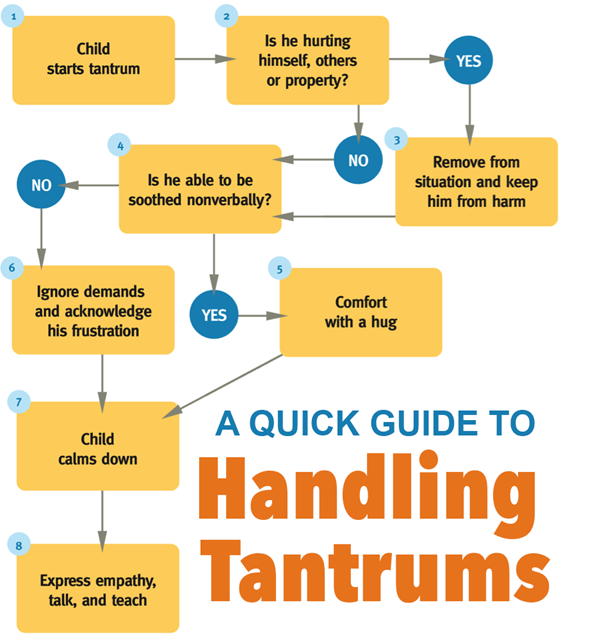Please rotate your device
We don't support landscape mode yet.Please go back to portait mode for the best experience
We don't support landscape mode yet.Please go back to portait mode for the best experience


How To Deal With Toddler Temper Tantrums
Are you also struggling with a developing child's temper tantrums (aggression)? Is your 2–9-year old having a tantrum over the word "go," and you're feeling helpless to stop it? If you answered "yes" to any of these questions, don't worry; you're not alone. Every family faces difficulties. When a child is having a hard time adjusting to a new situation, like in preschool or daycare, or dealing with disappointment, temper tantrums can occur.
What Causes Children to Lose Their Temper?
Temper tantrums are typically associated with toddlers, but if your regular daycare or preschool going child is throwing tantrums at regular intervals, there may be a problem. So sit with your youngster and spend time with him or her so that he or she does not feel neglected. In addition, when a youngster gets older, he or she gains a better grasp of his or her surroundings. He knows and understands his parents' and others' strengths and weaknesses, and he believes he or she can get away with it by throwing a tantrum.
To deal with temper tantrums, parents must first understand the source of the problem; what is prompting their child to throw tantrums?
· Experts believe that every temper tantrum stems from a single cause: children not obtaining what they desire.
· Temper tantrums are a common way for children between the ages of one and two to communicate. For instance, a diaper change, more milk, or perhaps a toy they desire. As a result of their lack of language and speaking skills, kids resort to temper tantrums as a way of communicating. When we don't grasp what they're trying to convey, they get irritated and throw a tantrum.
· For older children however, a temper tantrum is a power struggle, especially those aged 3 to 4 years. They are more conscious of their own needs and desires, and if their parents do not meet them, they will throw tantrums in an attempt to acquire what they want.
Today, we're going to provide you with some fantastic ideas that will help you avoid having fights with your kids.
1. Emphasize the positive.
Spend some time thinking about what you could say to show your child how much you love and appreciate them, instead of relying on your one or two go-to statements to congratulate them.
2. Children's Games
To avoid boredom, conduct an activity together, such as a craft. Many tantrums occur as a result of a child's boredom.
3. Wait a while, then talk about your tantrums.
The child is often still emotional in the middle of a tantrum or just following it, and is not ready to think properly or have a talk. To be honest, the parents may also require some time to recuperate. A time out... or a 10-minute break... to take a big breath and calm before the debate works incredibly well in my house.
The time out wasn't meant to be a punishment, but rather a tactic to encourage calmer thinking.
4. Hug them through it all.
Did you know that tantrums are scientifically based?
They aren't there for no reason or only to annoy us moms. Anger or grief, according to experts, are the most common causes of tantrums. Knowing what's causing your child's behaviour will help you figure out how to handle it.
5. Relaxation Techniques Can Help Avoid Tantrums
Relax and unwind. Creating a peaceful and soothing environment throughout the day is one method to reduce outbursts. Massage your children before bedtime to relax them and prepare them for sleep.
Tantrums at bedtime and throughout the day can be reduced by finding ways to relax them throughout the day.
If you're a parent, you've probably dealt with a tantrum from your kid/kids at some point. It's difficult to be patient and work through them quietly, but the sooner we can learn to do so, the faster they'll fade away, and we'll have taught our children life lessons that they can apply in adulthood when those "uncomfortable" sensations arise.
Please share any miraculous tips or tactics you know for stopping or avoiding tantrums in the comments section below!